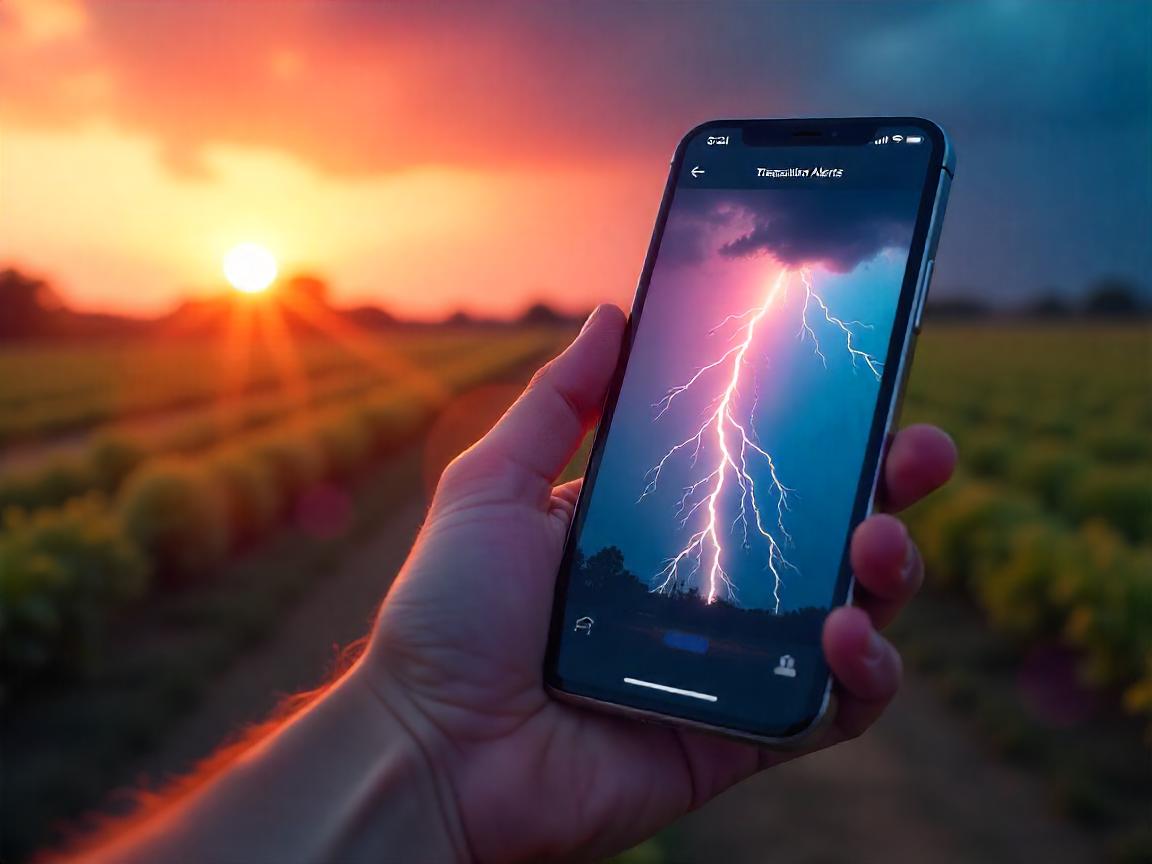The Dawn of Hyperlocal Weather Forecasting
Imagine receiving an alert on your weather application notifying you, “Rain in five minutes.” This intriguing notion is backed by advancements in artificial intelligence and data science. Experts suggest that AI could soon provide hyperlocal forecasts, customized not just for towns but for individual streets or even gardens. While the timeline for such developments remains unclear, the possibility is certainly enticing.
The Role of AI in Meteorology
The Met Office’s Chief AI Officer recently shared insights on a proof-of-concept study showcasing the potential of AI in revolutionizing real-time weather tracking. The integration of advanced technology offers a glimpse into a future where users can expect immediate updates tailored to their specific location. Currently, meteorologists rely on traditional physics-based models, utilizing extensive data collection to generate forecasts. However, with ongoing research, there is hope that AI could augment these methods for better accuracy and detail.
Harnessing Supercomputing Power
At a recent launch event, the Met Office introduced a groundbreaking supercomputer designed to deliver more detailed 14-day forecasts. Housed in two undisclosed locations in southern England, this state-of-the-art machine is believed to be the first cloud-based supercomputer dedicated entirely to weather and climate forecasting. The new supercomputer not only enhances forecasting capabilities but sets a new industry standard through the integration of AI and cloud technology.
The Power of Data
Every day, vast quantities of data are fed into these models—up to 300 terabytes from satellites, sensors, and weather stations. Traditional forecasting methods consume incredible amounts of computational power, while AI models, like those developed through partnerships between different meteorological organizations, can quickly learn patterns from this extensive data. AI manages to offer real-time forecasts that could lead to improved travel planning, especially for services such as transfers or taxi bookings where weather conditions can alter travel times and routes.
Shifting Towards a Hybrid Model
Despite the promising nature of AI, experts emphasize that AI must work in tandem with physics-based models. Renowned meteorologists recognize that although AI provides real-time answers, it lacks “explainability.” In contrast, traditional methods offer a transparency that is invaluable for users relying on accurate forecasting. A hybrid forecasting strategy—which combines advanced AI techniques with the proven methods of physics—could be the key moving forward.
The Roots of Traditional Meteorology
Historically, the foundations of meteorology were built on mathematical descriptions of the atmosphere’s behavior and extensive studies of weather patterns. This data-driven approach remains essential, especially for predicting rare and extreme weather events. While AI excels at suggesting probable scenarios based on past data, human meteorological intuition remains crucial in understanding and predicting unprecedented climate conditions.
Impact on Economical Sectors
The implications of advanced weather forecasting extend beyond the scientific community. Accurate forecasts significantly benefit various sectors, including aviation, shipping, and even recreational activities like cricket. According to economic assessments, enhanced weather prediction capabilities could yield an estimated £56 billion over the next decade in value to the UK economy alone.
Implementing Next-Generation Technology
With the Met Office already looking ahead to a future exabyte-scale supercomputer to be launched by 2027, the evolution of weather prediction systems is on an exciting trajectory. These advancements are akin to filling an entire large house with data storage, offering the capacity to harness an unprecedented level of detail for forecasts that could change how the world approaches travel and logistics.
The Future of Weather Forecasting
The need for smarter, more intuitive weather forecasting is clear. Accurate forecasts can lead to better decisions for travelers, as understanding localized weather can significantly impact transfer timings and choices. As advancements continue, accessing reliable weather data will become increasingly critical. Travelers can leverage technology and services to ensure they remain informed and prepared.
Personal Experience Matters
While comprehensive reviews and expert analyses provide useful insights, nothing compares to personal experience when it comes to travel. On platforms like LocalsRide, travelers can hire vehicles with drivers from verified providers, granting them the upper hand in securing a seamless experience. With customizable options, prices, and transparency, users are empowered to make informed decisions, avoiding unnecessary costs that often accompany unclear services.
In summary, the evolution of hyperlocal weather forecasting combined with technology presents exciting opportunities for enhancing travel logistics. Whether it’s planning a cab ride or securing a transfer, real-time forecasts could play a transformational role. LocalsRide offers a user-friendly solution for personalized transfers at reasonable prices, maintaining transparency and convenience throughout. Stay ahead of your travel game and ensure your journey is as smooth as can be—Book your Ride at LocalsRide.com.

